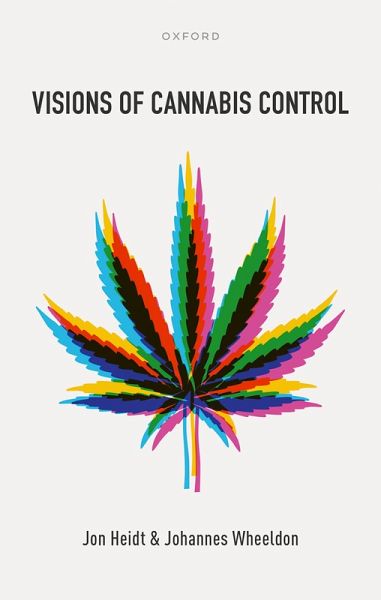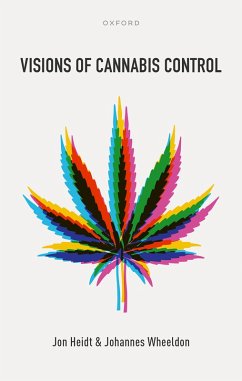
Visions of Cannabis Control (eBook, ePUB)
Versandkostenfrei!
Sofort per Download lieferbar
76,95 €
inkl. MwSt.
Weitere Ausgaben:

PAYBACK Punkte
38 °P sammeln!
Visions of Cannabis Control argues that cannabis prohibition is the result of moral panic that has been instigated, perpetuated, and sustained in ways that are difficult to dislodge. The book documents the history of these cannabis policies and explores the impact of issues such as racism, labelling, and stigmatization. Stan Cohen argued that reforms designed to replace carceral tendencies within correctional institutions can instead extend such approaches into our communities. The idea that criminal justice reforms often reproduce what they were intended to disrupt can be applied to the canna...
Visions of Cannabis Control argues that cannabis prohibition is the result of moral panic that has been instigated, perpetuated, and sustained in ways that are difficult to dislodge. The book documents the history of these cannabis policies and explores the impact of issues such as racism, labelling, and stigmatization. Stan Cohen argued that reforms designed to replace carceral tendencies within correctional institutions can instead extend such approaches into our communities. The idea that criminal justice reforms often reproduce what they were intended to disrupt can be applied to the cannabis revolution currently underway around the world. Racial disparities in arrests persist, exacerbated by laws that make it legal to possess cannabis but illegal to consume it anywhere but in your home. In this book, the authors argue that too often, cannabis liberalization comes at the cost of expanding paternalistic public health models and abstention-based diversion programs. The goal of dismantling and disrupting illicit markets has undermined onerous regulations, anaemic marketing efforts, and failure to promote consumer-centred approaches. Emphasizing public health goals ahead of market conditions complicates legal cannabis as an industry. To understand the future of cannabis policy, Visions of Cannabis Control examines the experience of six countries and several US states through the lens of criminological theory, recent research, and practice. The book presents several solutions for responsible regulation concluding that sustaining reform will require a more inclusive approach ensuring those affected by cannabis policies are consulted, respected, and involved.
Dieser Download kann aus rechtlichen Gründen nur mit Rechnungsadresse in A, B, BG, CY, CZ, D, DK, EW, E, FIN, F, GR, HR, H, IRL, I, LT, L, LR, M, NL, PL, P, R, S, SLO, SK ausgeliefert werden.













